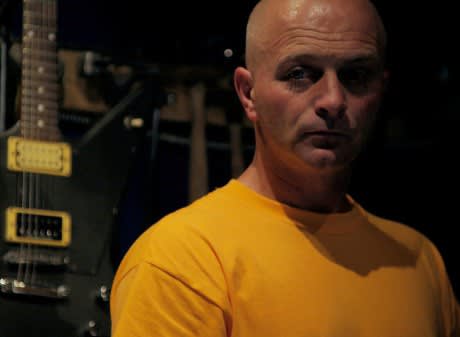In set up, the traditionally structured documentary, My Amityville Horror, presents as a mixture of present day interviews with Daniel Lutz—the man that lived in the Amityville house as a child—and archival footage of the many news stories surrounding their haunting claims back in 1975. It's seemingly the sort of speculative supernatural doc that's been made hundreds of times over, only featuring comprehensive interviews with someone that lived the terror of The Amityville Horror firsthand.
But Eric Walter's cleverly structured and slowly revelatory film is much bigger in scope and execution than the standard fluff that winds up as horror DVD supplemental material. Rather than voyeuristically detailing the "behind the scenes" of the supposed Amityville haunting, Walter analyzes his subject and the Lutz family dynamic to posit a different, more plausible truth, behind Daniel Lutz's claims.
During early scenes, Lutz is paired with Dr. Susan Bartel, a noted Psychologist and author, to discuss his childhood experiences. Demonstrating traditionally defensive behaviour—often attributed to sociopaths—Lutz presents aggressively, asking Bartel to divulge her own most traumatic life experience, which he then diminishes in an unsuccessful effort to get the upper-hand and resign Bartel to a passive participant.
This tendency to preface stories with commentary and excuses intended to manipulate and control reactions is consistent throughout all of Lutz's interviews, much as his tendency to perceive his own identity as amalgamate of real life experiences and the cinematic presentation of his familial claims often blend. Stories of child abuse arise, as does the unusual behaviour and paranormal preoccupation of Daniel's Stepfather, George, whose openness to fantastical happenings could have easily swayed an impressionable child and modified their memory to include delusion with sporadic reality.
Walter is careful to balance the psychological exploration with spiritual speculation and a reporting framework with Laura DiDio—a reporter that interviewed the Lutz family back when the story broke—acting as an ersatz mediator. Still, despite this fair balance, the likelihood of what happened in that house is abundantly clear by the end of the film but Lutz's psychological make-up and violently defensive disposition is fascinating to watch and interpret.
(Lost Witness)But Eric Walter's cleverly structured and slowly revelatory film is much bigger in scope and execution than the standard fluff that winds up as horror DVD supplemental material. Rather than voyeuristically detailing the "behind the scenes" of the supposed Amityville haunting, Walter analyzes his subject and the Lutz family dynamic to posit a different, more plausible truth, behind Daniel Lutz's claims.
During early scenes, Lutz is paired with Dr. Susan Bartel, a noted Psychologist and author, to discuss his childhood experiences. Demonstrating traditionally defensive behaviour—often attributed to sociopaths—Lutz presents aggressively, asking Bartel to divulge her own most traumatic life experience, which he then diminishes in an unsuccessful effort to get the upper-hand and resign Bartel to a passive participant.
This tendency to preface stories with commentary and excuses intended to manipulate and control reactions is consistent throughout all of Lutz's interviews, much as his tendency to perceive his own identity as amalgamate of real life experiences and the cinematic presentation of his familial claims often blend. Stories of child abuse arise, as does the unusual behaviour and paranormal preoccupation of Daniel's Stepfather, George, whose openness to fantastical happenings could have easily swayed an impressionable child and modified their memory to include delusion with sporadic reality.
Walter is careful to balance the psychological exploration with spiritual speculation and a reporting framework with Laura DiDio—a reporter that interviewed the Lutz family back when the story broke—acting as an ersatz mediator. Still, despite this fair balance, the likelihood of what happened in that house is abundantly clear by the end of the film but Lutz's psychological make-up and violently defensive disposition is fascinating to watch and interpret.
